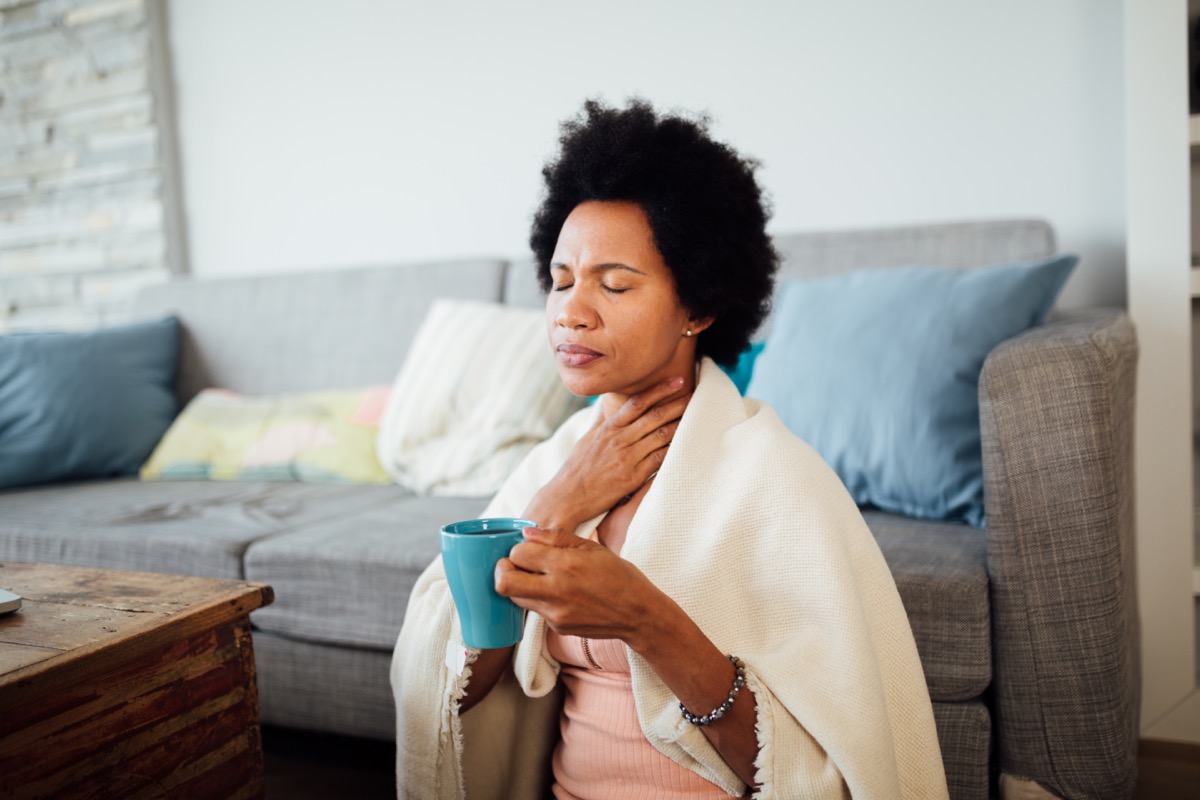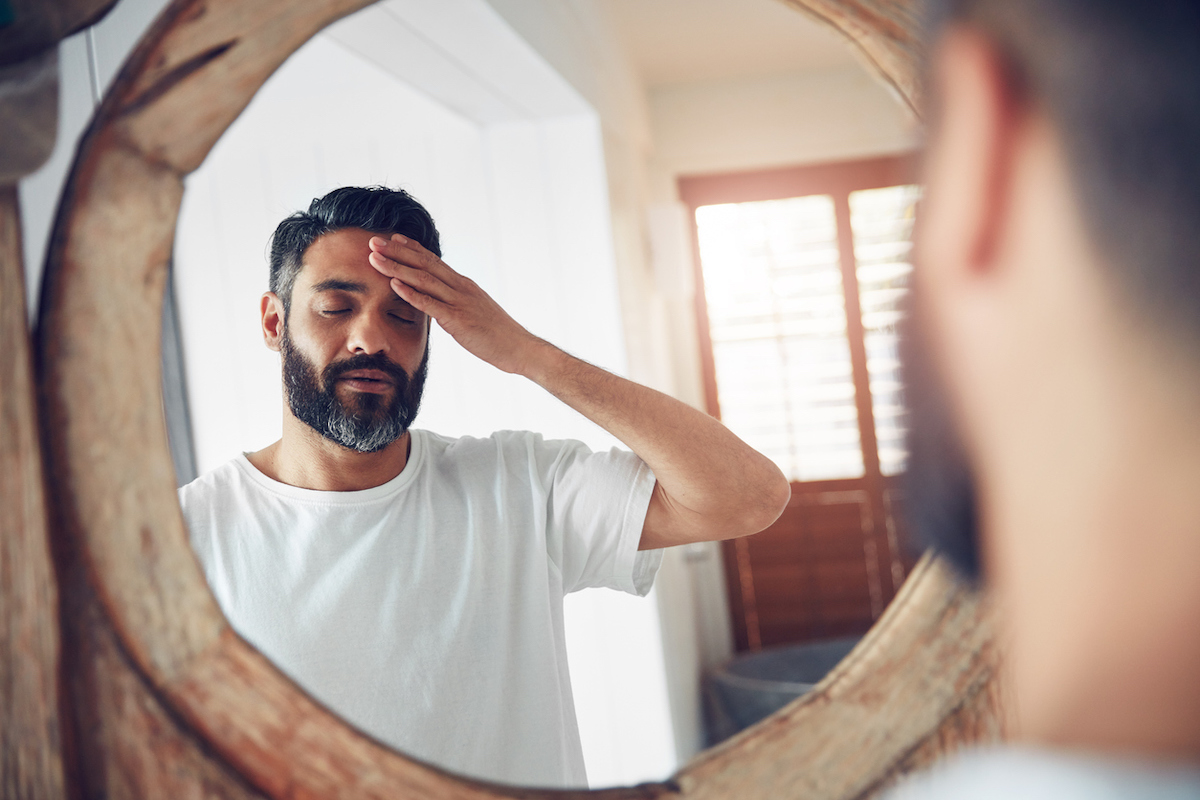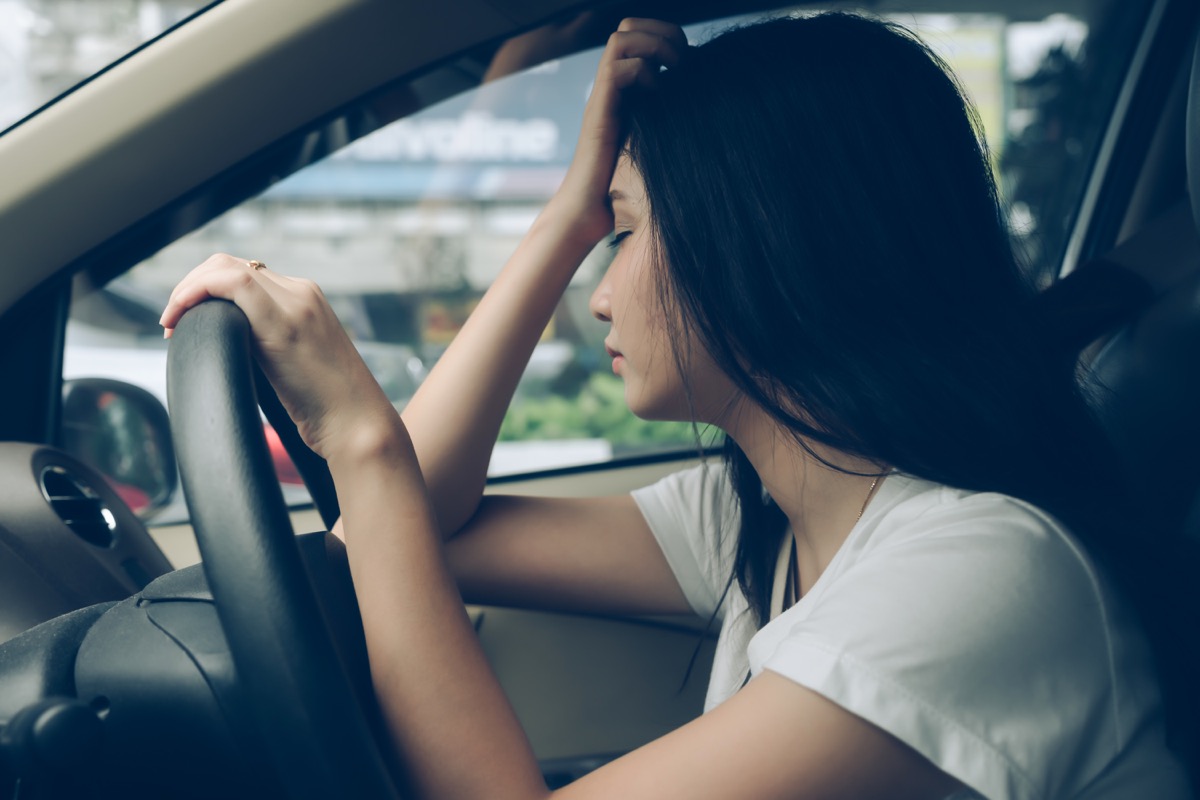In a recent study, which has not yet been peer-reviewed, researchers at the Icahn School of Medicine at Mount Sinai in New York analyzed data from Apple Watches worn by 297 healthcare workers. The wearable tech’s ability to monitor sustained changes in someone’s blood flow and heartbeat over time can indicate warning signs of inflammation—a telltale indicator of COVID-19. The nearly 300 study participants were asked to wear Apple Watches full-time and to install an app that specifically looked for changes in their heartbeat. The researchers analyzed a metric called heart rate variability, which is the variation in time between each heartbeat. It’s also a way to measure how well a person’s immune system is working. “We already knew that heart rate variability markers change as inflammation develops in the body, and COVID is an incredibly inflammatory event,” Rob Hirten, MD, assistant professor of medicine at the Icahn School of Medicine, told CBS News’ MoneyWatch. “It allows us to predict that people are infected before they know it.” Results showed that more than two-thirds of subjects who eventually tested positive for coronavirus were correctly alerted to the fact they had been infected an average of seven days before any symptoms were reported. “Right now, we rely on people saying they’re sick and not feeling well, but wearing an Apple Watch doesn’t require any active user input and can identify people who might be asymptomatic,” Hirten said. “It’s a way to better control infectious diseases.“ae0fcc31ae342fd3a1346ebb1f342fcb Further reporting by CBS News, which looked into the study in question as well as another conducted by Stanford University in November, determined that the devices were relatively reliable at detecting the early onset of COVID infections. Now, researchers are working with developers to create early warning systems for Fitbit, Garmin, Apple, and other wearable products that can tip off users when it’s time to consider getting a nasal swab or isolating. “It’s a big deal because it’s alerting people not to go out and meet people,” Michael Snyder, PhD, a professor who led the Stanford study, told CBS News. But just because you don’t own a smartwatch doesn’t mean you can’t keep an eye on your health at any given minute. Read on to see other early warning signs that you’ve been infected with coronavirus, and for more symptoms to look out for, check out If You Notice This in Your Mouth, You Could Have COVID, Experts Warn. If you ever wake up to find your morning coffee tasting bland, take note: you could be infected with the novel coronavirus. A recent study conducted by experts from the Harvard Medical School, University College London (UCL), King’s College London, and the Weizmann Institute of Science in Israel found that anosmia and ageusia (the clinical terms for loss of smell and taste, respectively), were “omnipresent” and “a reliable COVID-19 signal.” Researchers explained that the two telltale symptoms were “consistently the strongest predictor of COVID-19 infection across all platforms over time.” Anosmia and ageusia were both found to be highly predictive of a positive test, which researchers say reinforces how important public education on such atypical symptoms can be in fighting the pandemic. And for more on testing your senses, check out If You Can’t Smell These 2 Things, You May Have COVID. Even though a sore throat can be the result of a cold, the flu, strep, or a wide range of other possibilities, you shouldn’t ignore it if you develop one. Instead of assuming it’s minor, you should always take a sore throat seriously as a potential early sign of COVID. According to Physician One Urgent Care, a sore throat resulting from COVID typically presents with other symptoms, including cough, shortness of breath, congestion, or loss of taste and smell. It also differentiates from sore throats suffered as a result of strep by tending to develop more slowly. And for more on risk factors that should be on your radar, check out If You Have This Common Condition, You’re More Likely to Get Severe COVID. A study published in JAMA Neurology found that roughly eight out of 10 COVID patients experience neurological symptoms, with headaches being the most common among them. Still, it’s important to note that headaches can occur for any number of reasons, meaning the number of headaches will far outnumber the instances of positive COVID tests yielded as a result of having one. And for more regular COVID news, sign up for our daily newsletter. As perhaps the best-known symptom of COVID, patients will often present with a fever as a first symptom—and in some cases, it’s the only sign of illness. But experts also warn that having a fever is not a requirement for a COVID diagnosis, and other symptoms shouldn’t be discounted in the absence of an elevated temperature. “You can be infected with the coronavirus and have a cough or other symptoms with no fever, or a very low-grade one, especially in the first few days. Keep in mind that it is also possible to have COVID-19 with minimal or even no symptoms at all,” explains Lisa Lockerd Maragakis, MD, the senior director of infection prevention at Johns Hopkins. And for more on predictors of how your brush with coronavirus will play out, check out This One Thing Could Determine If Your COVID Case Will Be Severe or Mild. Feel like you can’t make it through the afternoon without a nap? If you find yourself experiencing a sudden wave of exhaustion, your fatigue could be an early sign that you’ve contracted coronavirus. The World Health Organization (WHO) recently determined that fatigue was the third most commonly reported symptom of the virus, with roughly 38 percent of COVID patients experiencing it. And for more on how to decipher this symptom, check out This Is How to Tell If Your Fatigue Could Be COVID, Doctors Say. Keep reading Best Life for more.




